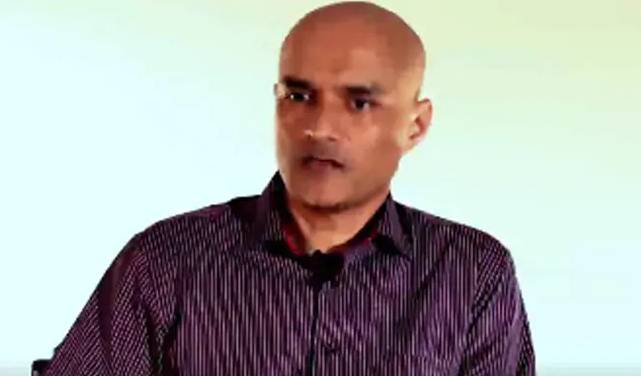Pakistan moves court in Kulbhushan Jadhav case
Govt asks IHC to appoint legal representative for Indian spy-terrorist

Stay tuned with 24 News HD Android App

To meet the fair trial requirements and fulfil the obligations under the International Court of Justice (ICJ) decision, the government filed an application with the Islamabad High Court (IHC) on Wednesday in connection with the sentencing of Indian spy-terrorist Kulbhushan Jadhav.
The Ministry of Law and Justice moved the court under the recently-promulgated International Court of Justice (Review and Re-consideration) Ordinance with a request to appoint a counsel for the Indian spy in the national interest, reported 24NewsHD TV channel.
Moreover, the application says that the court should pass the necessary orders so as to ensure that Pakistan’s obligations under the ICJ verdict are met.
The development came as Jadhav refused to avail the offer to file a review petition last week.
At that time, the Foreign Office said that Pakistan had enacted the International Court of Justice (Review and Re-consideration) Ordinance, under which a review petition could be submitted to the IHC within 60 days of the legislation coming into effect. The 60-day time limit ended on July 19.
Last week, Pakistan decided to give third consular access to Jadhav, as the Foreign Office said the Indian authorities were formally informed about the decision.
“The third consular access would be without the presence of security personnel,” said the Foreign Office spokesperson. However, New Delhi hasn’t yet responded to the offer.
Pakistan took this decision just a day after providing second consular access to Jadhav on Indian request, which was described by the Foreign Office as “unimpeded” and “uninterrupted”.
"Two consular officers of the Indian High Commission in Islamabad were provided unimpeded and uninterrupted consular access to Commander Jadhav at 1500 hours", the statement read.
An offer for consular access was first made in August 2019 but India rejected that while demanding unimpeded access to the spy. Later on September 2, the first consular access under the Vienna Convention on Consular Relations (VCCR) 1963 was provided.
